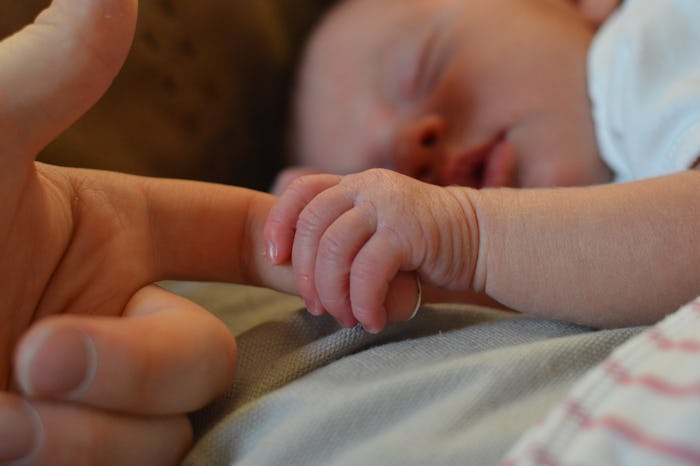Sudden infant death syndrome, or SIDS, is something that no parent should ever have to fear — but despite progress currently being made in terms of lowering numbers, many still do. Approximately 1,500 deaths a year on average are associated with the confounding syndrome that causes infants to stop breathing in their sleep. There is only so much that parents can do to prevent SIDS and once their child grows out of the age range where SIDS no longer poses a threat, it may be easy to just forget about it altogether and move on with their lives. In reality, though, it is important that parents across the globe continue to advocate for others — and figuring out how to help lower SIDS risk for low-income families is actually easier than you might think, at least in terms of doing your part for your own community.
Studies have found that there is a link between SIDS and infants from low-income families, as well as race. Black and Native-American infants, according to Parents, are two to three times more likely to succumb to SIDS.
Ensuring that education and proper resources are available to these families, then, is important. After all, it's the small things — like putting a baby to sleep on its back or keeping a fan on in their room — that can help prevent SIDS. Luckily, there are ways that you can help other parents access those things, no matter where they are.
Advocate For Baby Boxes In Your State
In March, according to ABC News, the state of Alabama voted to give all families in the state a free baby box if they took a quiz on sleep safety. Baby boxes consist of a firm foam mattress and tight fitted sheet intended for safe sleeping — and to reduce the risk of SIDS, for all families. The fact that the boxes are free definitely helps lower income families — as the boxes can run up to $75 to $220, according to ABC News. Suzanne Booth, executive assistant for the Alabama Rural Development Office, told ABC News that if everyone used a baby box in the state of Alabama, it could cut the infant mortality rate by 22 percent.
Alabama, along with Ohio and New Jersey, are now the only three states in the United States that distribute baby boxes free of charge — but there's no reason that all 50 states can't also get behind the trend. Contact your representatives or state parenting organizations and ask that they follow suit.
Support Legislation That Promotes Awareness For SIDS
Contact your state representatives and let them know that more attention needs to be brought to SIDS through legislation. It's important that state and federal laws ensure parents are receiving education about SIDS from proper channels, and that law enforcement officials and child care professionals are receiving education about SIDS, too (especially when parents go off to work and leave their infants in the hands of others).
According to the National Conference of State Legislators, only 15 states have laws pertaining to educating professionals about SIDS, and according to the National Association of Neonatal Nurses, 43 states have SIDS laws in place — but only a handful of those provide free materials or education pertaining to the syndrome itself. By contacting your representatives, you're letting them know that more attention needs to be brought to this subject and insisting that resources and education be made available to everyone, not just parents who have access through private facilities or insurance providers.
Donate Your Resources
A 2005 study found that the use of a pacifier during sleep reduced the chances of a baby suffering from SIDS by 90 percent, according to Scientific American. Every bit helps for those in need — including new pacifiers. Those looking to help can call their local family resource center or local parent center and ask if they're accepting donations. Even donating a firm mattress could help reduce the risk of SIDS for low income families — according to NPR, infants should always sleep on a firm surface on their backs in the same room as their caregiver and not in the same bed as their caregiver. Donating an unused or lightly used baby mattress to a shelter could save an infant's life.
Spread The Word
While some might be aware of SIDS, they might not be aware of what they can do to prevent it. Infants mattresses should be bare — with little pillows or stuffed animals surrounding the child while they sleep, according to SIDS.org, and cribs should be kept in the parents room until they are 6 months old. It is important to remind every new parent about these things — whether you see a risk present in a friend's nursery photo shared on Facebook or see a friend's baby sleeping on their stomach.
No parent ever intentionally puts their child at danger, but the things that seem like little mistakes — such as leaving a teddy bear in the crib — could amount to something much larger. Don't be afraid to speak up and bring up the subject of SIDS with others. Approach the issue carefully, so it doesn't seem like you're shaming, and pass along any doctor-approved information that you have, or direct your friend or family member to a person who can give out more info, free of charge.
While many of these things seem disconnected to the troubling SIDS rates that still persist, know that even the smallest act counts — and in the end, your little bit of help could save lives.
